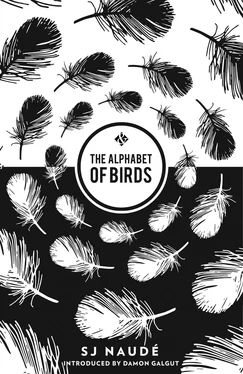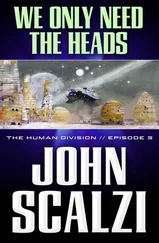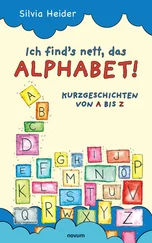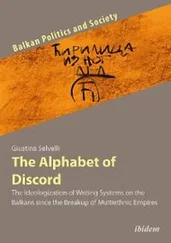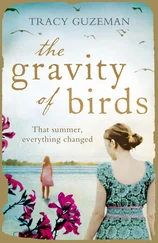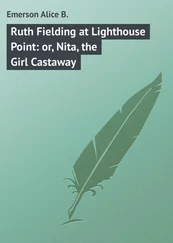Chris freezes. He quickly looks over his shoulder, half-expecting to see the bony Northern European in the glow of a torch behind him. But no one has followed them.
Then he rushes forward. A few metres below him is the black water. The current is stronger than he imagined. It is too dark to see very far down the canal. His eyes search along the base of the house where it rises straight up out of the water. A movement against the wall, above the base, catches his eye. It takes a while before he realises it is the man, moving along a narrow ledge, body flattened against the granite. Further along, he can make out the profile of a balcony.
Chris looks down at the water, tests the ledge with one foot. He takes off his shoes, puts them neatly together by the tree trunk and follows — toes on the ledge, fingers in a groove. Below him, water glides against stone as smoothly as oil.
By the time he has reached the balcony, where the man is now awaiting him, his fingers have cramps. He is helped over the balustrade like someone rescued from drowning.
‘That was a rather foolish exercise,’ the man says laconically, the accent unstable.
‘Ditto,’ Chris says.
The man shrugs his shoulders. ‘Second nature.’
‘What, foolishness?’
Chris has now switched to Afrikaans. He can hear his own voice carrying across the canal. On the opposite side are bright lights against steel towers. Atop the towers, the megaphones of factory sirens glint. Half-light reflects off the water.
The man smiles a sly smile against the reflections, as if saying: No, recklessness.
‘You are Tom,’ Chris says.
‘I am Tom.’ It sounds as if his tone is coupled with the raising of an eyebrow, but he has stepped back, into the deeper shadows, his face now a void.
‘Fred mentioned you.’ Chris leans forward onto the balustrade. The balcony hangs out over the water; it is made entirely of wood. Behind them, louvred shutters cover a door to the house. With Tom, he immediately senses, there is no room for the wearisome kind of questions and tales with which exiled South Africans sometimes approach each other when they meet in foreign parts. He detects no anxiousness on Tom’s side to share a history or feelings of alienation. He is nevertheless listening carefully to Tom’s dangerous voice, his abrupt utterances, to work out where they might have met before.
Tom lights a cigarette without asking whether it would bother Chris or offering him one. ‘So, what just happened in there?’
‘Hard to say. Fred told me in a letter that Tita has recently been working through many nights on her PhD thesis. Perhaps she’s tired or stressed, maybe a little rusty when it comes to performing, rather than writing about, music. Or perhaps it’s the weight’ — Chris gestures vaguely to the ramshackle house above their heads — ‘that’s forcing the air from her lungs … ’ He is not sure himself what he is trying to say.
‘What was she going to play?’
‘No idea. Perhaps nothing, perhaps what we saw was the performance. She has all kinds of ideas about the boundaries of performance.’
Tom takes his time inhaling the smoke of his cigarette, turns towards the shutters as if wanting to hear what is going on inside.
‘What’s she researching?’
‘History of music. The composer Luigi Russolo, apparently, and his influence on twentieth-century music. The title is something like From Russolo to Lachenmann , with a subtitle that I forget.’
‘Hmm,’ Tom says, and turns towards Chris, his tall body posing a challenge in the dark. He does not say anything. He seems to be taking delight in his own leanness.
‘I like Milan,’ Chris says after a while to break the silence. ‘I prefer it to the threadbare romanticism of Rome; I like the fact that the industrial decay here can’t be eclipsed by the glitz of the fashion houses. Milan symbolises the idea of modern Italy better—’
‘I don’t know either Rome,’ Tom says, ‘or Milan. This is my first visit.’ Chris feels the cold seeping into his feet. Below his soles, the wood is brittle and dry.
After a while Tom turns back to the water. ‘During the war between Ethiopia and Eritrea,’ he says, ‘I was based in Asmara. As a photographer for an American paper. That, I thought back then, is how Italy looks. All those buildings from the thirties, the ice-cream-parlour colours.’
‘Yes, that I like,’ Chris says, excited about the direction the conversation is taking. ‘The European landscape through the lens of the colonial city, the idea that the former looks like the latter rather than the other way round. I’d love to visit Asmara. Mussolini’s architects apparently built it almost overnight. The old locomotives of the Eritrean railways, I’ve read, still carry the years of their construction according to the Fascist calendar. I also like the fact that the city’s modernist lines are disrupted by the life of an African city, by dark bodies, the chaos of war …’
Tom blows slow smoke towards the water, drops the butt. The smoke drifts up, unfurls around them. For a few seconds their heads are out of focus. He is weighing me up, Chris thinks, and finding me too light.
Drily Tom remarks: ‘The city is in fact almost untouched by the war. And it is clean and functional. Poor, though — the Brits stripped it of infrastructure when they took over. Asmara doesn’t in fact feel like Africa: at dusk people wander the streets with double-breasted suits and fedoras. Odd place.’
Chris cannot get a grip on the character next to him. If it were light, he would be able to read something in the movements of his facial muscles. Nevertheless, Tom’s assuredness with his own body, the way in which he stylises even small movements, is starting to unravel a dim memory.
‘I presume you live in the US?’
Tom nods, keeps looking at the water’s muscular black currents. (Is it starting to rise?)
It takes a while before Tom speaks again. ‘I wonder whether these canals ever freeze over. Once I had to take photos for a local paper in Pennsylvania of a child who had drowned in a canal.’
Now it is Chris who is turning to Tom.
‘It was mid-winter, in a small industrial town. She had been missing for a week. Children who had gone skating that morning, the surface strong enough for the first time, discovered her. She was lying in her red snow jacket under the ice, looking up. The children and I stood there with our heads together, looking down.’
Chris turns towards the water. They are leaning forward, elbows on the balustrade, shoulders and hips touching. Tom’s face is moving into and out of the deeper shadows, unnerving Chris. Tom lifts his head and smiles an unpredictable smile against the glow, testing the wood with his foot.
‘I hope this contraption won’t collapse beneath us.’ And, as he is saying it, he inserts a hand under Chris’s shirt. With the lazy, indifferent insistence of a child stirring in its sleep, Tom’s fingers work their way up Chris’s spine to his neck.
‘Christiaan,’ Tom says, whispering heavily, ‘little Christiaan.’
In the moment before Tom says his name (his vertebrae a string of coals), Chris knows exactly who it is: Tommie. Yes, Tommie from his school days.
From his spine, his bones heat up. Above the water he is hanging from a skeleton of fire.
Early evening. Christiaan and Tommie are cycling up the hill behind their neighbourhood. They are thirteen, perhaps fourteen.
Tommie lives further down the street with his mother, in a far smaller house than Christiaan’s. His absent father, so he insists, is fighting terrorists in the war on the border. Tommie’s reckless aura has the boys in his class circling him like moths. He is smooth and brown as a chestnut in their midst, surrounded by a whiff of dusty sweat. His infamy is reaffirmed when the PE teacher punches him one morning when he refuses to change or train. He hardly moves a muscle when the fist makes contact and blood starts trickling through his lips. He balls his hands into fists, but does not hit back.
Читать дальше
